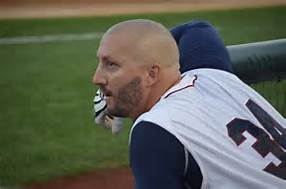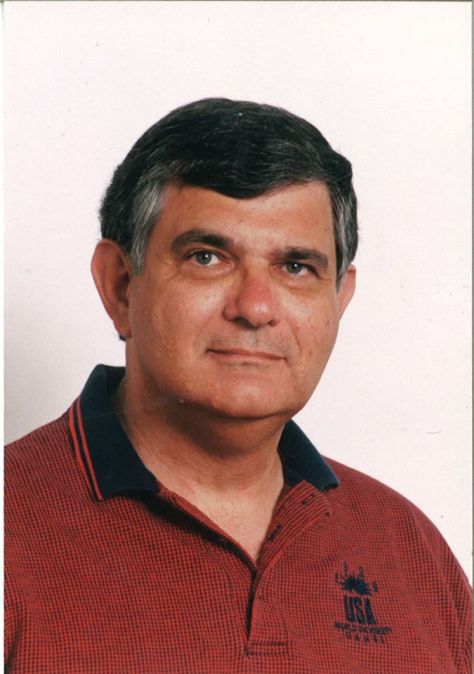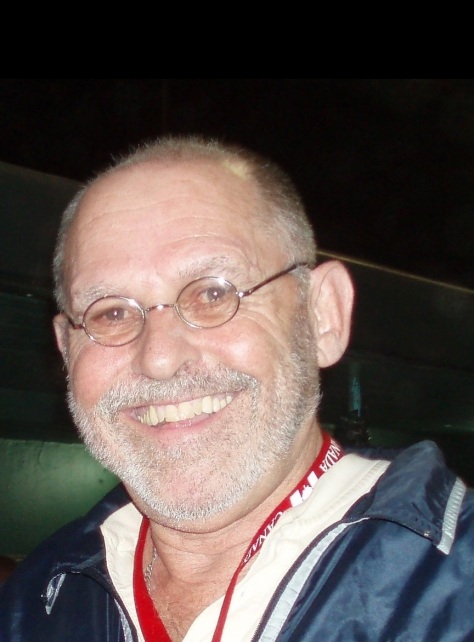
By STEVE KRAH
http://www.IndianaRBI.com
Jake Fox knows the honor of being chosen as an Indiana High School Baseball Coaches Association North/South All-Star Series participant.
Before he went on to play at the University of Michigan and 14 seasons in professional baseball — making his big league debut in 2007 with the Chicago Cubs — Fox played for the South in 2000 in Fort Wayne.
Fox, who is now retired as a player and living in Michigan, accepted an invitation from former Wolverines and current Ball State University head coach Rich Maloney to address the 2017 All-Stars and their families at a recognition banquet Friday, July 14.
A 1 p.m. doubleheader is slated for Saturday, July 15 with one wood-bat game at noon Sunday, July 16 at Ball State in Muncie.
Outlining the passion, persistence, perseverance and patience it took him to make it to baseball’s pinnacle and play five different positions with seven different MLB organizations plus stints in independent ball and in Mexico and Korea, the Indianapolis Cathedral High School graduate told his story.
Fox, 34, first congratulated the Class of 2017 All-Stars.
“This is a great honor,” said Fox. “You may not know it now. But looking back on my career, these are some of the memories that I hold dear. It is a testament to your talent and a dedication to your craft. It’s awesome.”
Why did Maloney choose Fox to speak when the coach has had so many players with what many would call better resumes?
“I asked him why me?,” said Fox. “He chuckled like the answer was obvious — ‘You played. You were there.’ Who else was going to stand up here and talk about getting from here to where I am now?”
Deciding against a prepared speech, Fox spoke from the heart.
“At the end of the day, I wasn’t a superstar player,” said Fox, who was selected in the third round of the 2003 Major League Baseball First-Year Player Draft by the Cubs and signed by scout Stan Zielinski. “I was a role player my whole time in the big leagues (through 193 games, 489 at-bats, 20 home runs, 73 runs batted in with the Cubs, Oakland Athletics and Baltimore Orioles). These kids don’t want to be a role player. They want to be the best.”
Fox asked the people who know him best to list his best qualities and he compared them with his own self assessment and came up with those four P’s.
Playing with passion, persistence, perseverance and patience, Fox found a way to stay on the field. He related a story of playing in Triple-A with the Iowa Cubs. He came up as a catcher and was working out before a game as a third baseman when his manager came to him.
“‘Of all the players I ever managed or coached, you’ve got the most out of your ability,’” said Fox of the words he heard that day. “That’s probably the biggest compliment I ever got.”
The manager went on to say that Fox did not have the physical ability of some of his teammates, but he possessed something special and said: “You come out here and find ways to compete. You’re trying a different position not because you have to but because you want to. You’re trying to get better.”
Fox said he was not equipped to talk about being a superstar, but he could speak to the effort it takes to get the most out of his God-given talent.
“My nose was to the grindstone,” said Fox. “I was so concentrated on where I wanted to go that I never actually sat down and thought about what got me there.”
Fox and his closest friends and family agree that he has passion.
“I loved to play baseball and if you don’t love it, it’s not going to last long,” said Fox. “This game can chew you up and spit you out.”
The IHSBCA All-Star alum also encouraged the current All-Stars to enjoy baseball as a team game — something that often goes away when professionals are competing for jobs and playing time and looking out more for themselves than chasing victories.
“That’s why I enjoyed playing in Mexico and playing independent ball,” said Fox. “Guys were just out there playing games.
“There was a time in Triple-A that I hated the most. It didn’t even matter what team was on the other side of the field. It was a competition in your own dugout. That’s not baseball.
For Fox it was about enjoying the competition and seizing the opportunities.
“At the end of the day — even with all the business things — you go out and play,” said Fox. “No matter where it is. No matter what country you’re in. No matter what level you’re at. We get too caught up in where you play and not how you play.”
How about persistence and perseverance?
“Everyday in the major leagues, I was overmatched physically,” said Fox. “These guys were 5-star athletes. I had to find a way to compete. You’ve got to be persistent. Coach Maloney said to me, ‘You know what the second-most favorite thing about you was: You never took ‘no’ for an answer.’”
Fox got much of his MLB playing time on the days when a regular would ask off with a particularly tough pitcher going that day for the other team?
“If you name a tough left-handed pitchers between 2007 and 2011, I probably faced them,” said Fox. “(The regular) would come in and say, ‘CC Sabathia’s pitching today? I don’t feel so good.’”
“When I stepped in that box, I feel I had nothing to lose. They could be a Hall of Famer. What did I care? That’s what made me as good as I was. I just wanted to play.”
Fox also learned to be patient.
“It doesn’t happen on your time,” said Fox. “You can feel like you’re ready. You can feel like you deserve it and you see other people take your place. But you keep playing and you will get your chance.
“They pass guys over because they are too busy complaining (about being slighted).”
Fox reflected on his career and said it was not the numbers he put up but the times he spent with teammates and families and the places he got to see along the way.
“I encourage you to enjoy the journey,” said Fox to the All-Stars. “You don’t know where it’s going to take you. You don’t. You show up everyday, you play hard and you have fun doing it and the rest will take care of itself.
“I once had a friend tell me, ‘You want to make God laugh? Tell him your plans.’ He’s right. You have no idea where this game is going to take you. You have no idea where life is going to take you.”
To illustrate his point, Fox talked about being invited to big league spring training with the Cubs in 2007 and where it led him.
It was Lou Piniella’s first season as manager and Chicago’s top two catchers — Henry Blanco and Michael Barrett — were called away to the World Baseball Classic. Fox was with the big club, but spent his sweaty afternoons warming up pitchers in the bullpen.
“I knew I was getting sent back down. I knew I wasn’t making the team. But I got the experience. I knew what the scouting report was about me: Good hitter. Can’t play defense. It bothered me. I wanted (Pineilla) to see what I was or wasn’t capable of doing before he read it in a report that I didn’t agree with.”
When Barrett came back from the WBC, Fox was the lone player on the roster who had not logged an at-bat or a defensive inning.
Barrett encouraged Fox to say something to the coaching staff.
The Hoosier finally worked up the courage ask for a chance to show what he could do before going to minor league camp.
Fox got his wish. He would play at the end of an away game against the Royals.
Called to hurry from the bullpen, Fox scrambled to the dugout and to the plate and socked the second pitch he saw — a slider — for a double off the wall.
In the ninth, Fox belts a first-pitch home run to plate the decisive run in a Cubs victory.
The next day, the Milwaukee Brewers came to visit the Cubs. Fox started the game on bullpen duty. When called upon to hit late in the game, he pops another first-pitch homer.
“I’ve seen four pitches (in big league camp) and have two homers and a couple,” said Fox.
The next day, Cubs bench coach Alan Trammel told the team to “keep it close until Fox can hit.”
Fox again homers that day.
“I thought I was going to black out,” said Fox.
The next day against the San Francisco Giants, Fox was called in from he bullpen to play left field — for the first time in his life.
Sent back to the minors, Fox opened the season by playing in the outfield and made his debut July 19 in right field at Wrigley Field.
“It just goes to show you that you never know where this game is going to take you,” said Fox. “I played five different positions in the big leagues (right field, left field, catcher, first base, third base). For a guy who couldn’t use a glove, I thought that was pretty good.
“So don’t ever put yourself in a box or limit yourself. Somebody else may see a capability in you that you don’t see yourself.”

Jake Fox, shown with the independent Somerset Patriots, played 14 professional seasons and was a 2000 Indiana High School Baseball Coaches Association North/South All-Star Series participant. (Somerset Patriots Photo)




